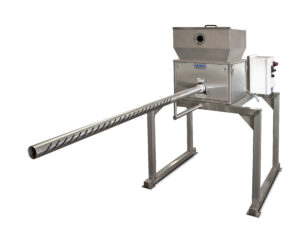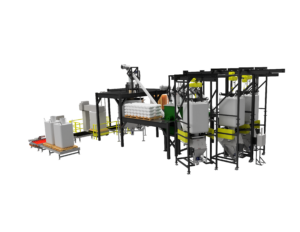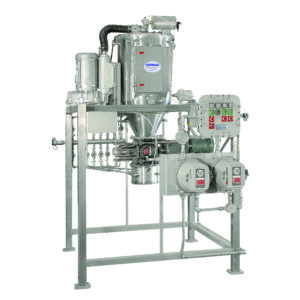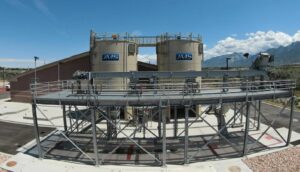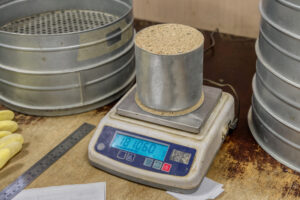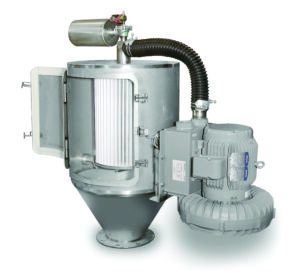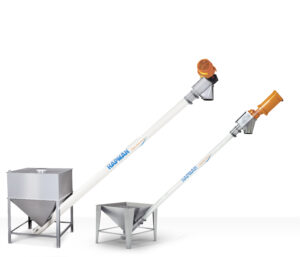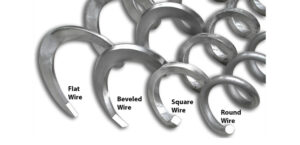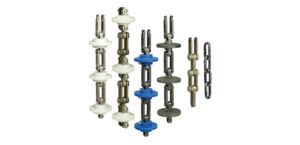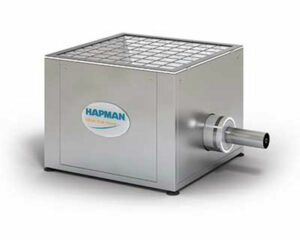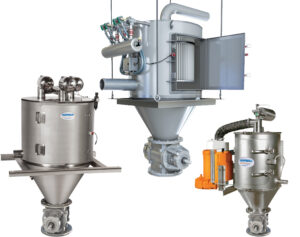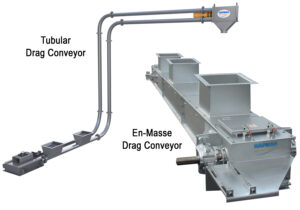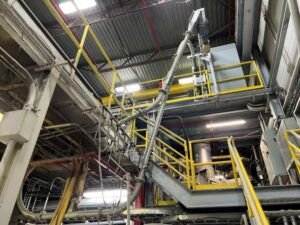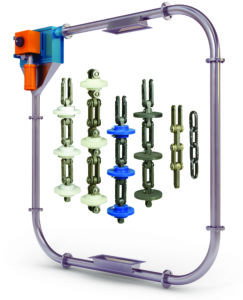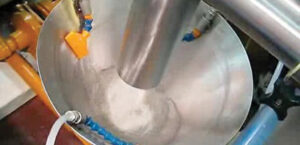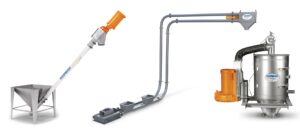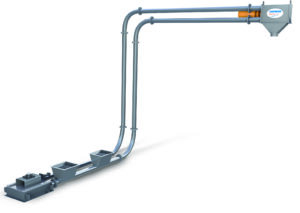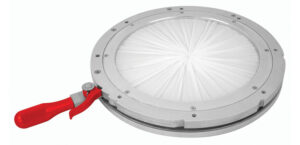Optimizing Seasoning Dispersion for Snack Food Leader
Discover how an industry-leading snack supplier leveraged Hapman’s precision feeding solutions to achieve flawless seasoning coverage.
Efficiency in Batching & Blending: 4 Common Challenges and How to Fix Them
There’s no single solution for any given material handling, batching, or blending application. Significant efficiency improvements require varying degrees of customization to meet your material, processing, and business goals. Asking…
Transforming Pharmaceutical Efficiency with Innovative Conveyor Technology
PROBLEM: A leading pharmaceutical company approached Hapman for help in designing a vacuum conveyor system tailored to their needs. They required a system to transfer their finished product from a…
Volumetric Vs. Gravimetric Feeder Operation
How Much Control Is Achieved with Volumetric vs. Gravimetric Material Feeding? Whether you work in the manufacturing or production industry, you need the right feeder system to regulate the flow…
Maggie Beauchamp, a Hapman sales rep from Gull Material Handling Company, contacted Hapman product specialist, Stephanie Avery, regarding a customer who manufactures premium bakery ingredients including icings, fruit fillings, crème…
Hapman partners with several major Wastewater Treatment facility developers meeting critical requirements around dosing treatment materials and sludge handling. Hapman Bulk Bag Handling, Helix flexible screws, and feeders manage dosing…
Bulk density is an important calculation if you want your equipment sized correctly. Here are a few simple steps to determine your material’s bulk density. Notes: Mass of Hapman cup…
When you’re generating saleable product, weight in KG or LBS is often the most important number. Operators often have the target weights engrained in memory. Unfortunately, the movement of material…
Moving Material through a Process: A Guide to Selecting the Right Conveyor
Summary The proper selection and sizing of a conveyor is critical to successfully meeting production goals. The key factors that should be evaluated when choosing a conveyor are; material, operation,…
Top Equipment Design Considerations for Handling Bulk Chemical Powders
“Successful conveying and handling of chemical powders requires much more input than understanding a material’s properties, the desired convey rate and distance. Today’s manufacturers are faced with tighter margins, leaner…
Regenerative Blower-Driven Vacuum Conveyors Fill Niche for Efficient, Small-Footprint Pneumatic Conveying By Steve Grant, Product Specialist Pneumatic conveying systems are frequently an excellent choice for moving large quantities of powdered,…
How Industry Expertise Ensures Correct Flexible Screw Conveyor Selection and Process Uptime
Introduction Most if not all manufacturing operations that deal with bulk materials will agree that downtime and loss of production are at the top of their list of process concerns.…
How to Get the Most Out of Your Flexible Screw Conveyor
Increasing Conveyor Performance and Efficiency Due to their relatively low cost and simple construction, flexible screw conveyors are one of the most common types of conveyors used by manufacturers. The…
The Case for Engineered Chains Over Round-Link Chains
Both varieties of chain-type tubular drag conveyors often compete for the same work. Here’s why they shouldn’t. The concept of tubular drag conveying is a common consideration among industries needing…
Material Effect on Power Requirements for Screw Feeders
CHALLENGE A screw feeder is commonly used to meter flow in powder processing applications because of ease of use, low maintenance, and material integrity without degradation. The relatively simplistic equipment…
Key Factors of Material Handling Equipment Design and Selection
Considerations When Handling Dry Ingredients INTRODUCTION Successful conveying and handling of dry ingredients requires much more input than understanding a material’s properties, the desired convey rate and distance. Today’s manufacturers…
Choosing a Pneumatic Conveying System: Pressure or Vacuum Because they are efficient and inherently dust-tight, pneumatic conveying systems provide the most practical method for moving large quantities of dry materials,…
Understanding the Functional Differences Between Drag Conveyor and En-Masse Drag Conveyor Chain conveyors whether known as Drags, Scraper, Paddle, or En-Masse all start out with a continuous chain and fixed…
Tubular Drag Conveying – A Cost-Effective, Energy-Saving Alternative to Pneumatic Conveying
Pneumatic conveying is often considered the standard solution for transferring materials in bulk solids plants. In many applications, however, a type of mechanical conveying — tubular drag conveying — can…
The Evaluation of Tubular Drag Conveyor Types
The Tubular drag conveyor has become the system of choice for many manufacturers who process bulk materials because of the conveyor’s layout flexibility, many flight and chain options that prevent…
Pre-Mix Solutions and Slurries – Effectively, Economically and Safely
INDUSTRY Chemical Industry CHALLENGE A perpetual challenge in the chemical industry has been finding an ideal way to effectively mix solids and liquids to create optimal slurry – and at…
Moving Material Through a Process
CHALLENGE Selecting a conveyor for a bulk material handling application is not always as straight forward as one might think. Moving material consistently, at a rate that is inline with…
Mitigating the Risk of Dust from Bulk Bag Discharge
CHALLENGE Controlling dust is a constant challenge for any processor that handles dry bulk material. The hazards from dust span the health and safety spectrum from mildly irritating and unclean,…
Innovative Conveying Solutions: Ensuring Safety, Protecting Materials, and Enhancing Efficiency
CHALLENGE Engineering conveying systems for today’s processors requires far more than just moving product from point A to point B. Engineers must also consider plant and worker safety through assessing…
Most of us are familiar with the iris diaphragm, a simple mechanism that can expand or decrease the opening of a circular hole. Common examples are camera shutters and the…
